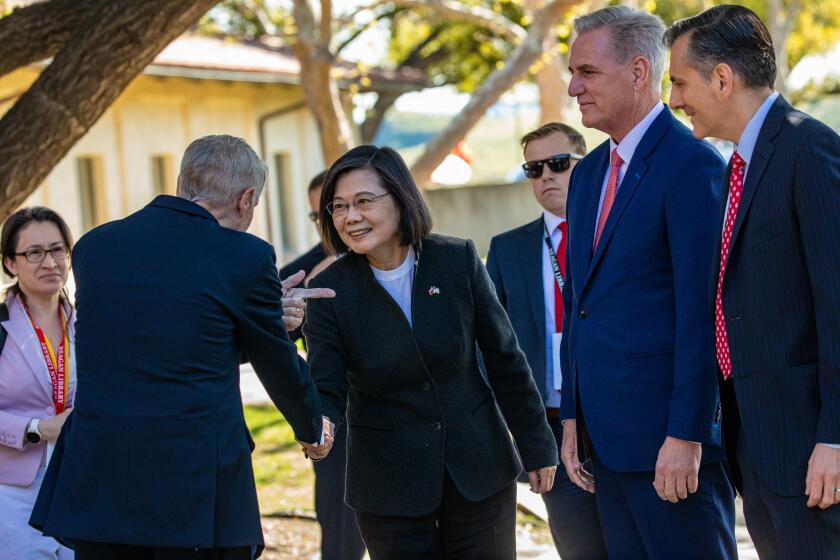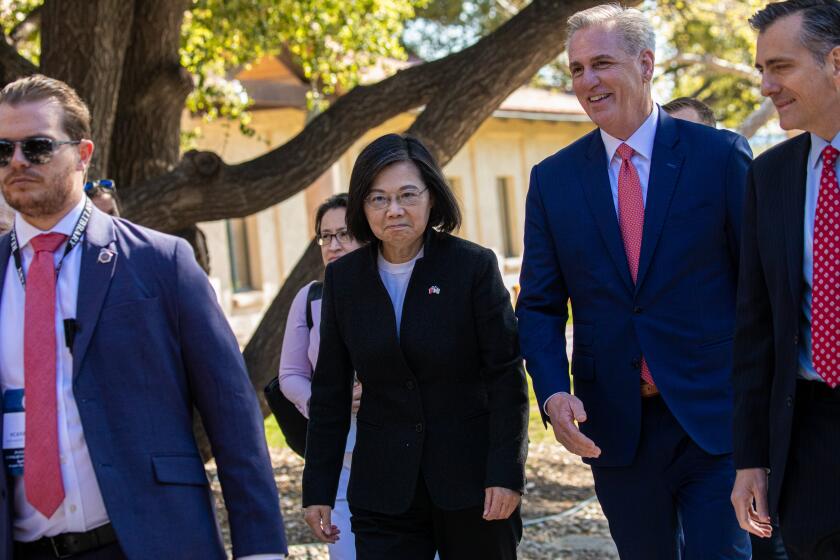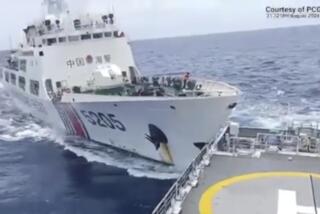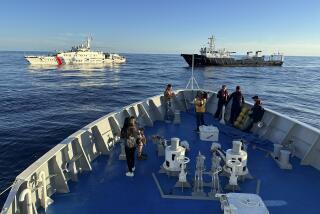U.S. releases video showing close call between American and Chinese destroyers in Taiwan Strait
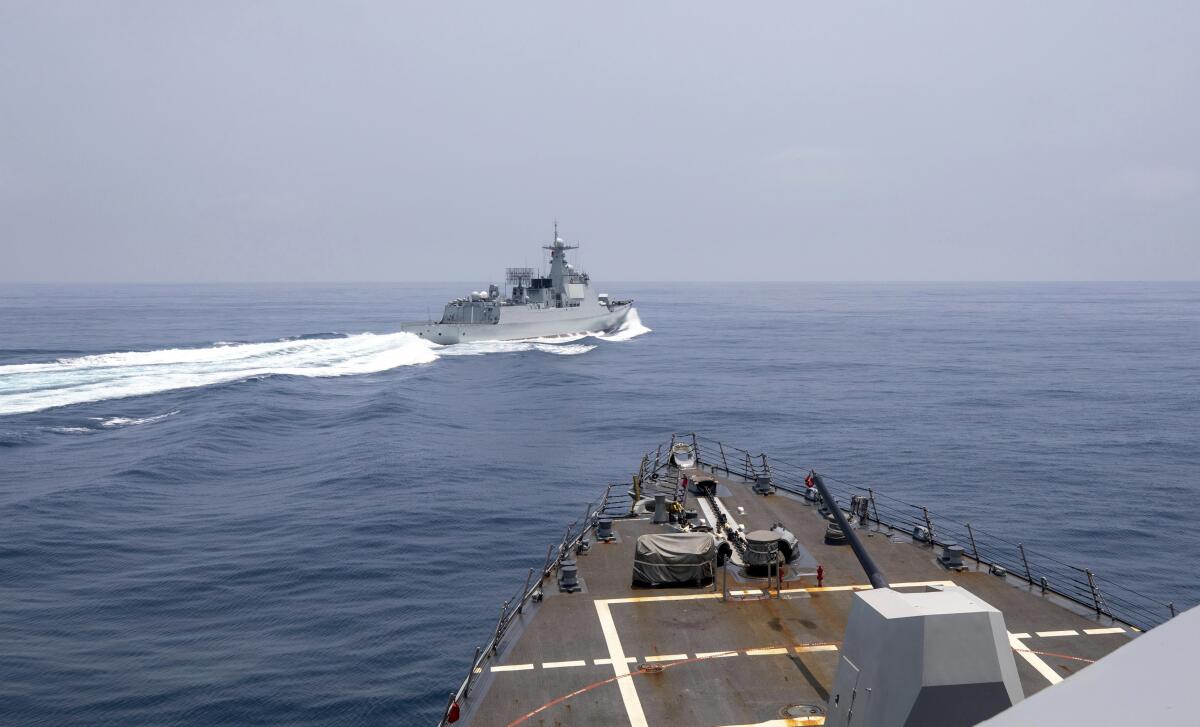
- Share via
BANGKOK — The U.S. military released video Monday of what it called an “unsafe” Chinese maneuver in the Taiwan Strait over the weekend, in which a Chinese navy ship cut sharply across the path of an American destroyer, forcing the U.S. vessel to slow down to avoid a collision.
The incident occurred Saturday as the American destroyer USS Chung-Hoon and Canadian frigate HMCS Montreal were conducting a “freedom of navigation” transit of the strait between Taiwan and mainland China.
China claims the democratic self-governing island of Taiwan as part of its own territory and maintains that the strait is part of its exclusive economic zone, and the U.S. and its allies regularly sail through and fly over the passage to emphasize their contention that the waters are international.
During the Saturday transit, the Chinese guided-missile destroyer overtook the Chung-Hoon on its port side, then veered across its bow at a distance of some 150 yards, according to the U.S. Indo-Pacific Command. The American destroyer held its course but reduced speed to 10 knots “to avoid a collision,” the military said.
The video released Monday shows the Chinese ship cutting across the course of the American one, then straightening out to start sailing in a parallel direction.
The Indo-Pacific Command said the actions violated maritime rules of safe passage in international waters.
The conflict between the U.S. and China over Taiwan’s sovereignty is political theater with drastic consequences.
The Chinese ship did not attempt a similar maneuver with the Canadian frigate, which was sailing behind the American destroyer.
“Chung-Hoon and Montreal’s transit through the Taiwan Strait demonstrates the combined U.S.-Canadian commitment to a free and open Indo-Pacific,” the Indo-Pacific Command said. “The U.S. military flies, sails, and operates safely and responsibly anywhere international law allows.”
Chinese Foreign Ministry spokesman Wang Wenbin defended the maneuver, saying Monday that it was undertaken “in accordance with the law.”
“China’s military actions are completely justified, lawful, safe and professional,” he told reporters in Beijing. “It is the U.S. that should deeply reflect upon itself
and correct the wrongdoings.”
A visit to California by the current president of Taiwan and a trip to China by her predecessor encapsulate the choices facing the self-ruled island.
The U.S. also recently accused China of performing an “unnecessarily aggressive maneuver” in the air, saying a Chinese J-16 fighter jet late last month flew directly in front of the nose of a U.S. Air Force reconnaissance aircraft over the South China Sea.
The close calls have raised concerns of a possible accident that could lead to an escalation between the two countries’ militaries at a time when tensions in the region are already high.
The incident in the Taiwan Strait came on a day when U.S. Defense Secretary Lloyd J. Austin III and the Chinese defense minister, Gen. Li Shangfu, were both in Singapore for an annual defense conference.
Li on Sunday suggested that the U.S. and its allies have created the danger with their patrols and were intent on provoking China.
Indigenous Taiwanese want to abandon their Chinese names, giving rise to a politically charged debate amid rising cross-strait tensions.
“The best way is for the countries, especially the naval vessels and fighter jets of countries, not to do closing actions around other countries’ territories,” he said through an interpreter. “What’s the point of going there? In China we always say, ‘Mind your own business.’”
Austin had invited Li to meet with him on the sidelines of the conference; Li declined.
More to Read
Sign up for Essential California
The most important California stories and recommendations in your inbox every morning.
You may occasionally receive promotional content from the Los Angeles Times.
